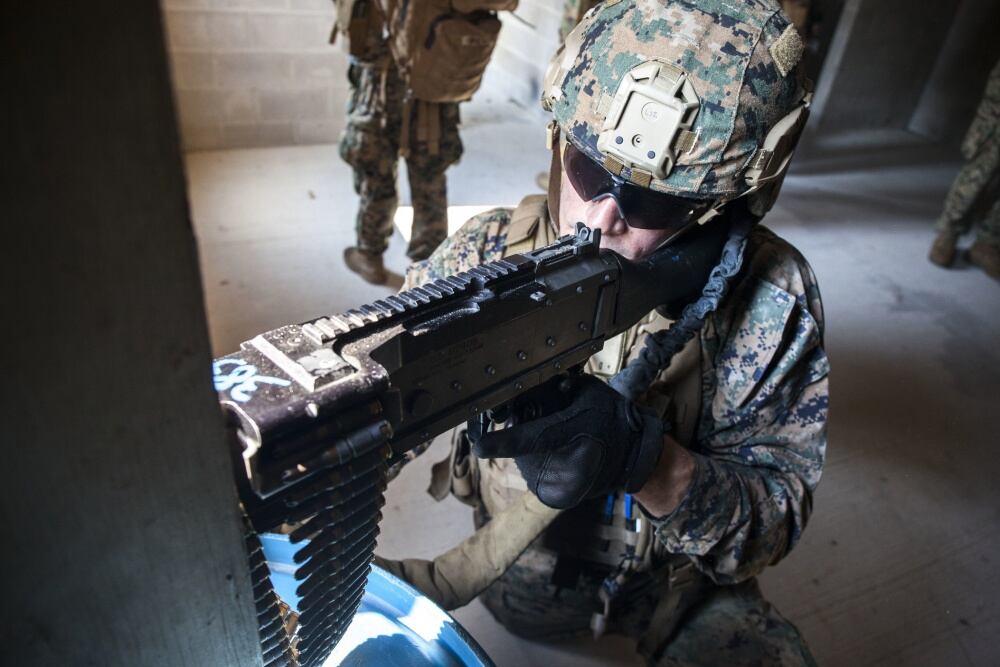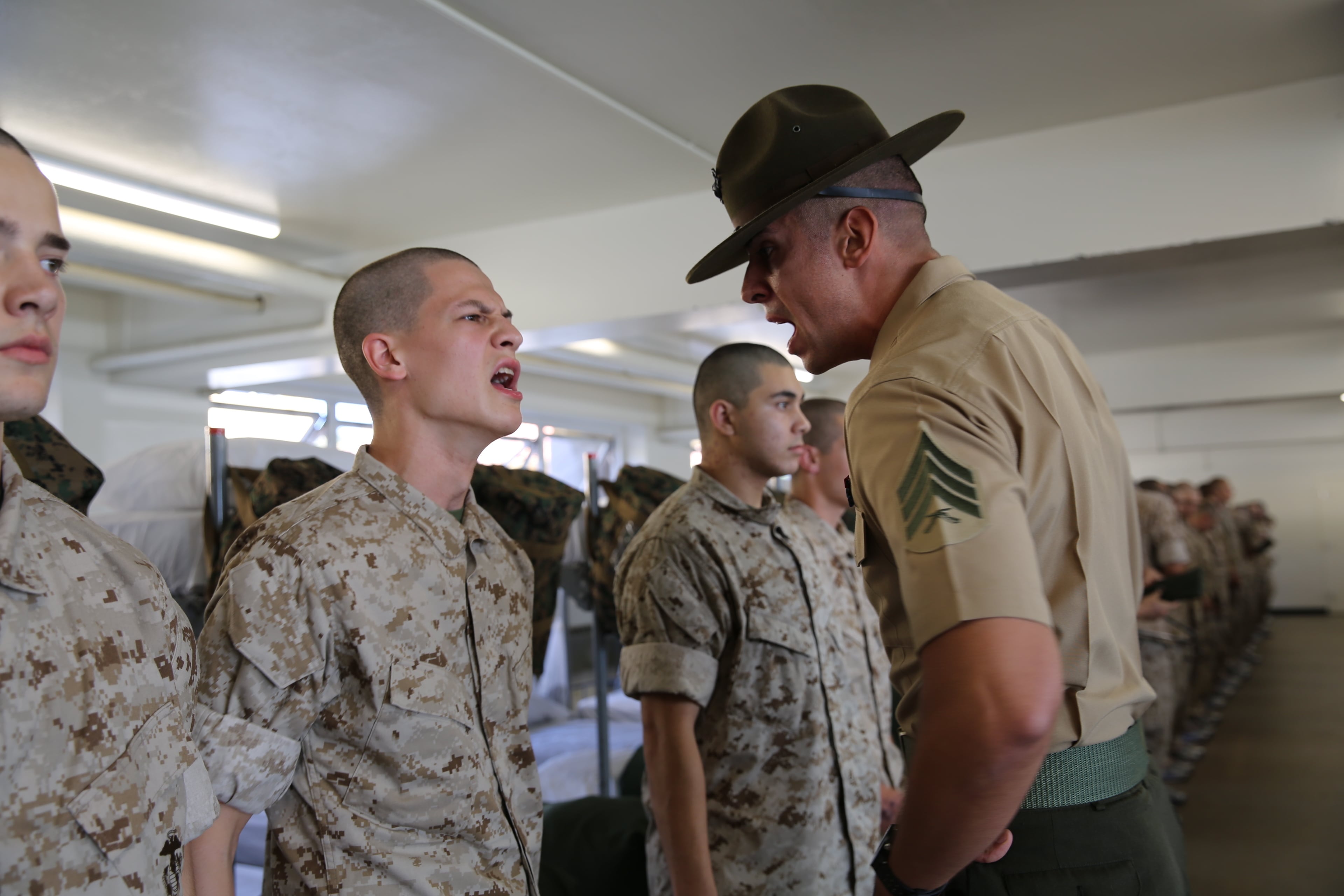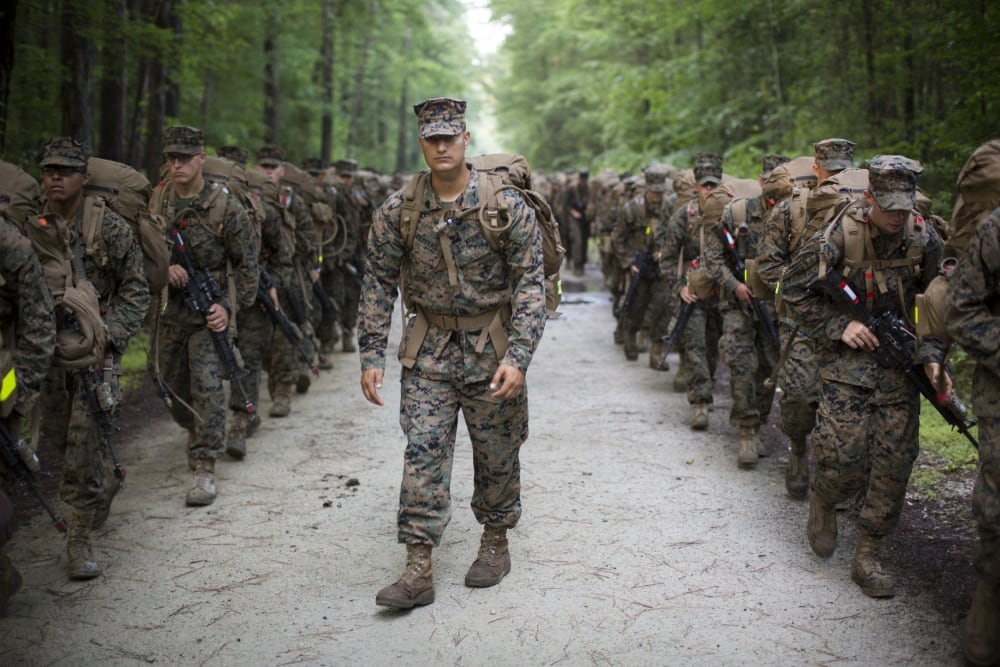MARINE CORPS BASE QUANTICO, Va. — Motivated Marines looking to move up the ranks faster — and get paid more doing it — should take on one of Marine Corps' most prestigious assignments.
The Corps is putting out the call for more volunteers for its special duty assignments — jobs that have proven to give Marines a big promotion boost and pay as much as $3,600 more a year.
SDAs give Marines experience outside their MOS at the heart of the Corps' mission: bringing fresh bodies into the fold as a recruiter, forging them into new Marines as a drill instructor, wading through the muck as a combat instructor to teach them the skills they'll need to stay alive, keeping watch as a Marine security guard over America's embassies in distant lands, or deploying at a moment's notice to engage the enemy with your anti-terrorism security team as a security forces security guard.
These are some of the Corps' most demanding jobs, ones that will define the rest of Marines' careers.
The three-year assignments have long been viewed as the fast-track for competitive Marines serious about a career in the Corps, the deputy commandant for Manpower and Reserve Affairs said.

U.S. Marine Corps Sgt. Joseph Canty, combat instructor, Advanced Infantry Training Battalion, School of Infantry - East, posts security as part of a military operation in urban terrain training exercise during the Infantry Small Unit Leaders Course (ISULC), Camp Lejeune N.C., Sept. 11, 2016
Photo Credit: Lance Cpl. Careaf Henson, USMC
New volunteer rules. With the Marine Corps adjusting course in the post-Iraq and Afghanistan world, getting 'back to the basics' becomes increasingly necessary.
"Since we have been in combat for so many years, the emphasis naturally swung towards combat operations and less towards some of the other stuff that the Marine Corps did," Brilakis said.
"After a period of some twelve years of combat operations, we have an entire generation of Marines who are not familiar with special duty assignments, who do not understand or consider special duty assignments as a necessary component of what we would consider to be a successful career."
This means a greater emphasis on getting the right Marines in the right positions, and this year manpower officials are trying something new.
In August, M&RA announced a voluntary submission period for Marines to put in for an SDA by Dec. 15, d etailed in Marine administrative message 415/16.
Eligible Marines who step up will be given assignment preference once the normal selection process begins in January, according to Col. Rudy Janiczek, head of the Enlisted Assignments Branch at M&RA.
"The reason that we did that is we like to see the Marines that want to do these duties come forward with more clarity to us as we look to make these assignments with what they would like to do," he said. "We felt that we needed to be more deliberate about it and give them an opportunity to step forward before we begin the annual selection process in earnest."
"This was just an opportunity that we put out to kind of remind them, 'hey, if you would like, tell us what your desires are and see,' said Sgt. Maj. Grant VanOostrom with M&RA. "It's about requirements and demands and how we can best fit your desires with what the Marine Corps needs."

Drill Instructor Staff Sgt. Michael R. Smalls, Platoon 3037, India Company, 3rd Recruit Training Battalion, yells commands during an initial drill evaluation March 7, 2016, on Parris Island, S.C.
Photo Credit: Sgt. Jennifer Schubert, USMC
Pay bump. These tough jobs come with enticing incentives.
The long hours and intense responsibility demanded of Marines on special duty assignments are reflected in supplemental pay each paycheck.
"That is identified based upon a combination of the remoteness of the assignment, the support provided to the individual Marine and his family and the criticality of the duty assignment," said Brilakis. "All Marines on special duty assignments receive some form and fashion of special duty pay."
Currently, recruiters bring in an additional $300 per month, drill instructors $150 and combat instructors $75, according to Manpower and Reserve Affairs.
For Marine security guards, the take is $75 per month for the first post, $100 for the second and $150 for the third.
Marines may also re-up in their MOS and receive a re-enlistment bonus on top of the special duty pay.

U.S. Marine Corps Sgt. Gregory L. Peppers II, a Combat Instructor with Hotel Company, Marine Combat Training (MCT) Battalion, School of Infantry-East, hikes down the middle of the company formation while conducting a 15 kilometer conditioning hike on Marine Corps Air Station New River, May 19, 2015.
Photo Credit: Cpl. Andrew Kuppers, USMC
Promotion boost. Completing an SDA is a way to supercharge your career.
The Marine Corps recognizes the personal and promotional growth gained through an SDA, reflected in an accelerated rate of promotion, Brilakis said.
Marines with an SDA account for 24 percent of meritorious promotions for junior Marines and 23 percent for staff sergeant and gunnery sergeant.

Drill instructors of India Company, 3rd Recruit Training Battalion, yell at a recruit for not responding loudly enough during pick up at Marine Corps Recruit Depot San Diego, Dec. 18.
Photo Credit: Sgt. Tyler Viglione, USMC
Location, location, location. This is a great way to land a hard-to-get duty location.
Staff writer Sam Fellman contributed to this report.





